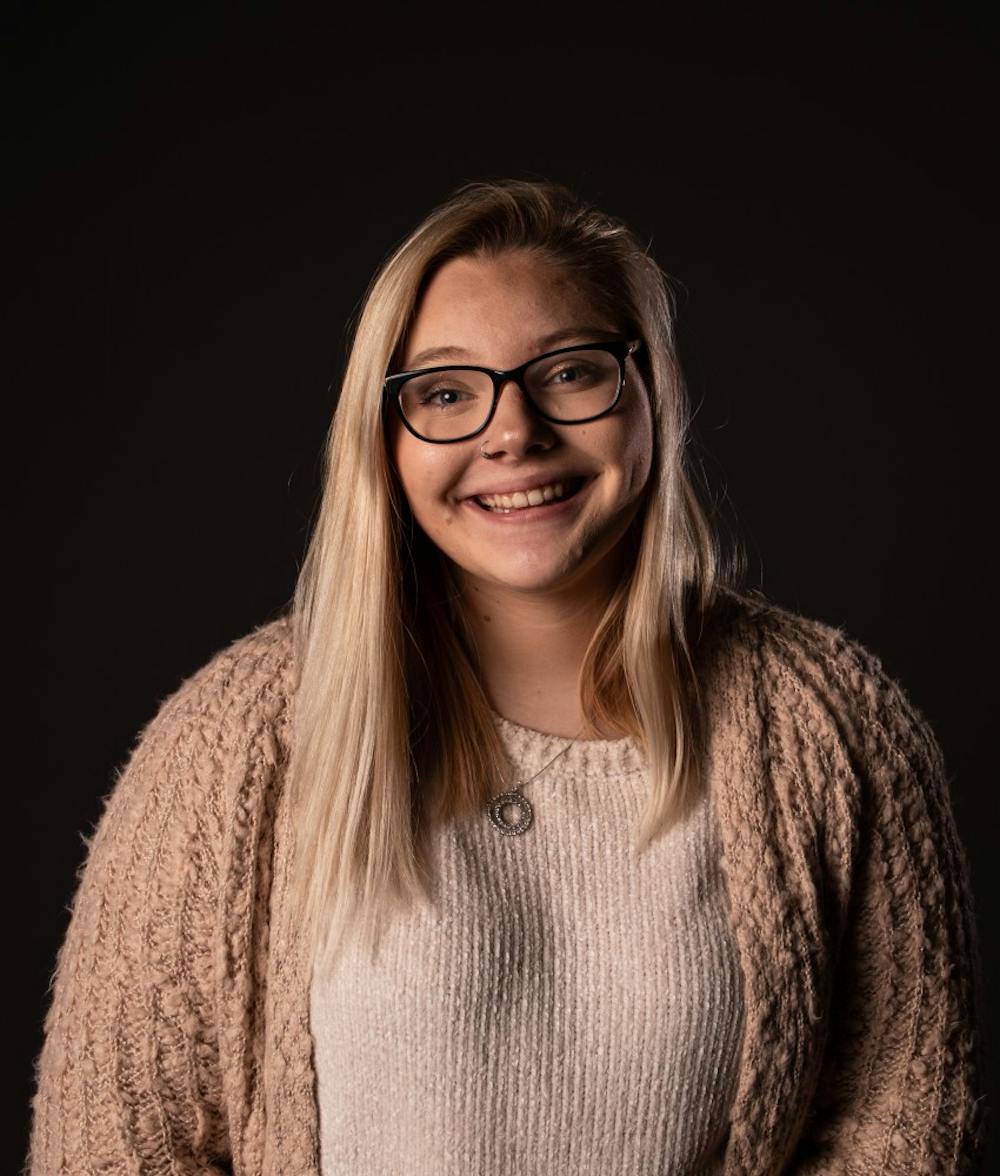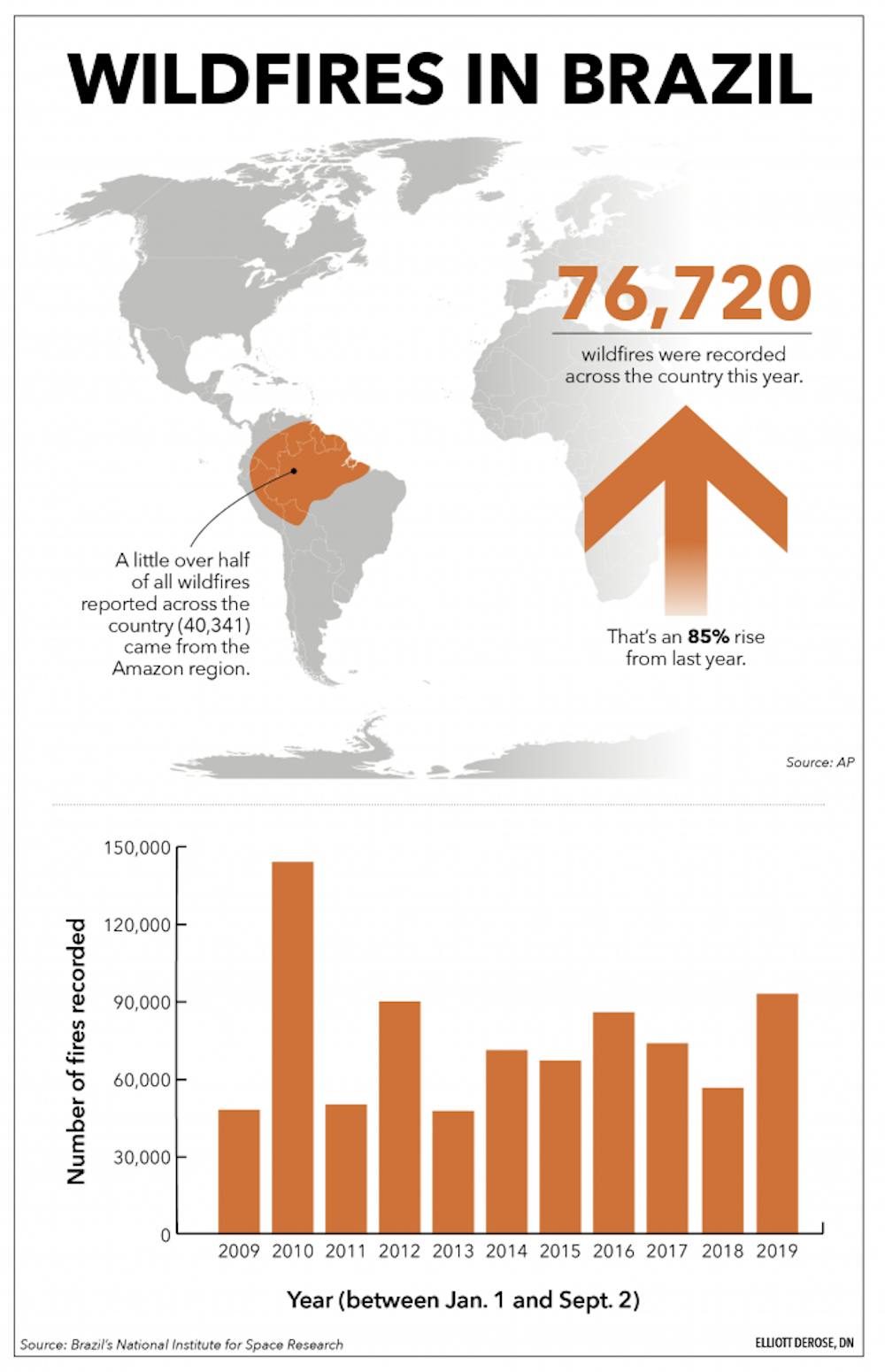
Sophie Nulph is a sophomore journalism major and writes “Open-Minded” for The Daily News. Her views do not necessarily agree with those of the newspaper. Write to Sophie at smnulph@bsu.edu.
Beginning at a young age, I was often called a hippie because I hated shoes and imagined my wedding in a forest — barefoot. I also believed, and still do, that war is not a necessity, and peace treaties are easier to come by these days than violent alternatives.
More importantly, I have always been terrified of the effects of burning fossil fuels has on our atmosphere.
Though I held this belief, I lived my life on the sidelines, not really advocating for these issues. I was always afraid to educate myself on the environmental tragedies happening around me because I did not want to face the reality that our planet is dying and that humans are the primary cause.
But now, I am forced to face the music as the lungs of Earth burn in Brazil.
The Amazon is on fire, as most people know by now. However, most people are completely unaware that these fires have been happening all year — in fact, there have already been 70,000 individual fires, according to National Geographic and Brazil's National Institute for Space Research.
Most people blame Brazil's dry season for the fires, and while this is a factor, there has been an 80 percent increase in fires from last year's dry season, according to National Geographic.
A big factor in the increase of these fires are actions taken by President Jair Bolsonaro to increase deforestation and make way for more agriculture land. All he's really doing, though, is ruining six percent of the world's oxygen, according to Climate Nexus.
While the impact on the atmosphere is frightening, the threat for the millions of species and 30 million people, including 350 indiginous tribes who depend on the rainforest, is more severe. If the president succeeds in turning it into a cattle farm, the Amazon will no longer be a sanctuary for endangered animals to heal and repopulate.

The fires in Brazil have inspired me to not only educate myself, but also make a difference in any way I can. I have been slowly trying to reduce my carbon footprint, use less plastic, use metal straws and walk more than I drive.
Much like a bad habit, I was unable to quit cold turkey. Multiple times, I became unmotivated and stopped my efforts. Constantly, I was discouraged by the fact that one person can’t save the world, so why bother?
I was unable to wrap my head around the fact that I don’t need to be a superhero to make a difference until recently.
You don’t need to become fully vegetarian or vegan, and you shouldn’t beat yourself up about forgetting a reusable straw, cup or bag. You are still doing your part to reduce the damage done to the world even if you just recycle your Starbucks cup and straw.
The hole in our ozone layer is the smallest it has been in 30 years according to NASA. Society doesn’t have to stop eating cows and quit using plastic entirely. The phrase is not “Quit. Reuse. Recycle.” The term “reduce” is there for a reason.
Eat beef once or twice a week instead of every night. Get your coffee in a plastic cup if you forgot your reusable one, but remember it next time. You can cut the little things out of your life, but don’t beat yourself up if you forget. You are still reducing your carbon footprint, and someday, you will get better at remembering your non-plastic straw.
Some of us have more means and ways to reduce our carbon footprint than others. Reusable cups are expensive, and single-use products are more accessible. But, something we all can do to help our environment is vote for officials who prioritize environmental issues.
The journey to help our Earth is a long one, and I am not perfect. But I am working on reducing my footprint, and I encourage everyone to go on this journey with me. Reduce, reuse, recycle, think about your consumption and make your vote matter.
On our own, we are not superheroes, but together we can make a difference before it's too late.





